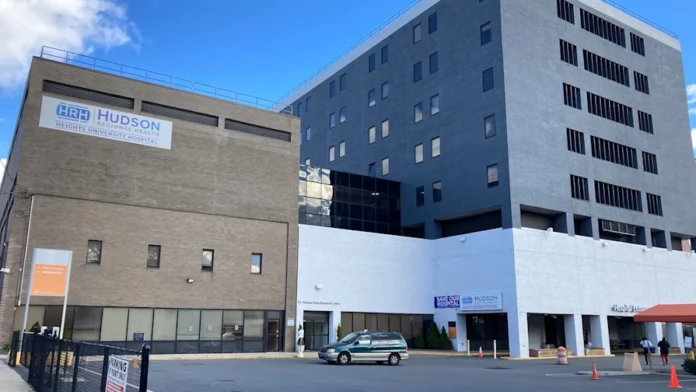Heights University Hospital in Jersey City, a cornerstone of the community for more than 150 years, is set to close its doors due to financial constraints, according to Hudson Regional Health, the system that operates the facility. The closure comes after years of financial pressure compounded by limited state funding, leaving the hospital unable to sustain its full range of services. While acute care operations will cease, Hudson Regional Health has confirmed that the hospital’s emergency department will continue operating 24/7.
The hospital, formerly known as Christ Hospital, became part of Hudson Regional Health following the bankruptcy of CarePoint Health. The health system now includes Secaucus University Hospital, Bayonne University Hospital, Hoboken University Hospital, and Heights University Hospital. Despite these expansions and investments, officials say Heights University Hospital faced unique financial challenges, including a patient population where six out of every ten individuals are unable to pay for the care they need.
Dr. Nizar Kifaieh, president and CEO of Hudson Regional Health, acknowledged the difficulty of the decision, noting his personal connection to the facility and its long history serving Jersey City residents. He stressed that maintaining emergency care remains the top priority. “Our goal is to make sure there is no interruption in patient care in the area,” Kifaieh said, emphasizing that ambulances and emergency services will continue to be available for acute emergencies such as heart attacks and strokes.
The decision to close the hospital as a full-service acute care facility follows the submission of a Certificate of Need for Closure with the New Jersey Department of Health. Hudson Regional Health explored various options to stabilize operations, including seeking additional state funding. In October, the state approved a $2 million lifeline, but Hudson Regional Health maintained that more sustained support was necessary to keep the hospital operational.
Adam Alonso, chief strategist for Hudson Regional Health, detailed the efforts undertaken throughout 2025 to address the hospital’s challenges. These included navigating a complex bankruptcy process, managing patient transitions, and securing regulatory approvals. He noted that while sister hospitals in the system are financially stable and expanding, Heights University Hospital carried significant operational and financial pressures that were difficult to overcome despite extensive planning and state engagement.
Despite the closure of the hospital’s acute care services, Hudson Regional Health confirmed that patients will still have access to multi-specialty medical care and behavioral health services at the facility. Investments are also being made at the medical office building across the street to ensure continuity of outpatient care, including radiology and laboratory services. Kifaieh emphasized that all patient transfers and downsizing measures have been conducted without disruption to patient care, maintaining high-quality standards throughout the transition.
The New Jersey Department of Health has been closely monitoring the situation, with survey teams onsite to oversee patient safety and regulatory compliance. The department confirmed that the hospital’s current census is low, with only 14 patients remaining, and stated that oversight will continue throughout the closure process. Regulators reaffirmed that the primary focus is ensuring that residents continue to have access to safe, high-quality emergency and medical care throughout the transition.
Hudson Regional Health also noted opportunities for hospital employees within its network, with multiple openings across the system for those affected by the downsizing. This approach aims to retain skilled staff while minimizing disruption to patient care.
The closure of Heights University Hospital marks the end of 153 years of full-service healthcare in Jersey City, but the continued operation of its emergency department reflects a commitment to maintaining essential health services for the community. Residents seeking information about ongoing services and wellness resources in the area can refer to health and wellness resources for guidance and updates.












